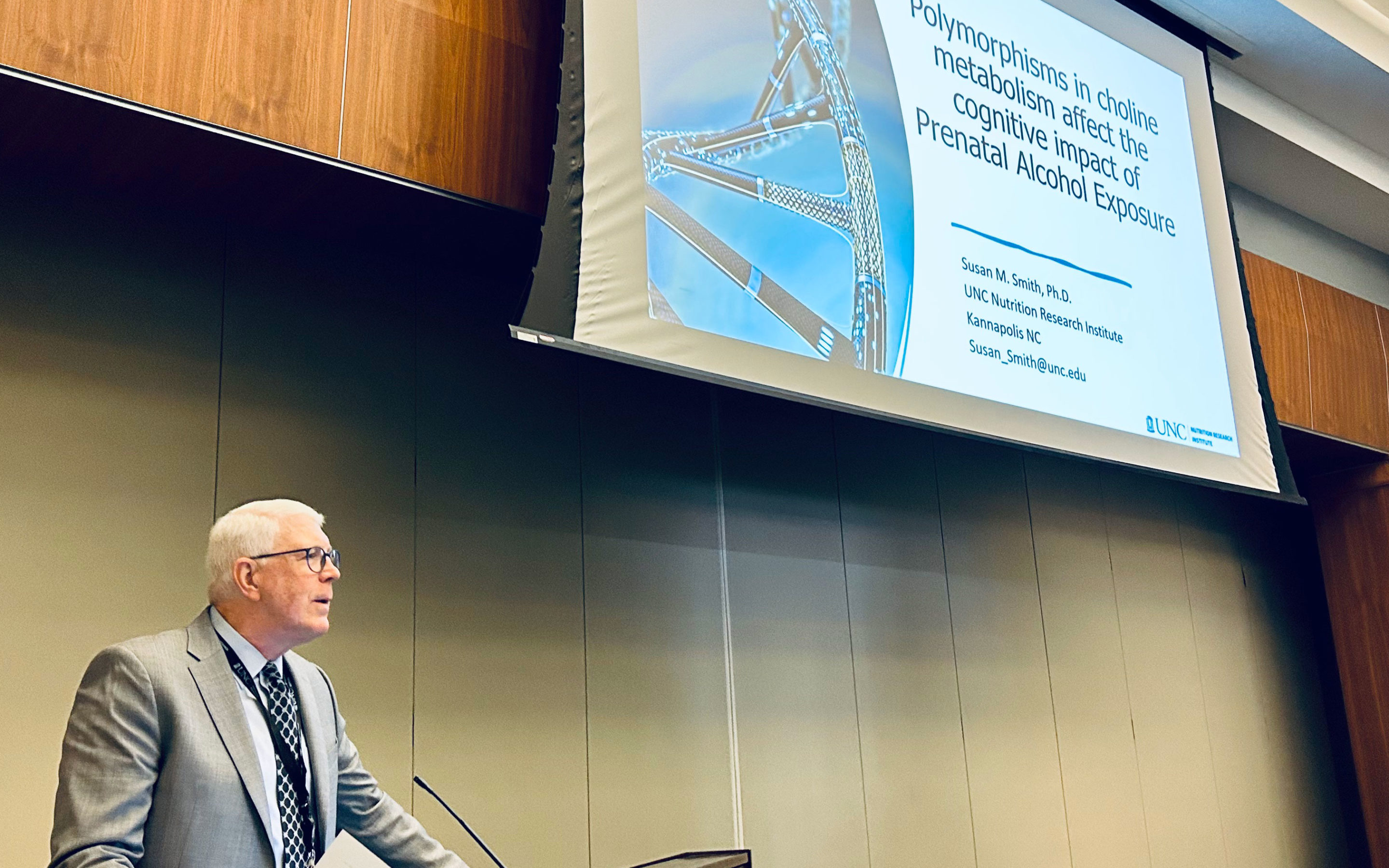


Hursting moves into 16th year of Breast Cancer Research Foundation grant
September 17, 2019 – “Our work has evolved from asking Is obesity increasing cancer risk? and What are the mechanisms linking obesity and cancer?” he says. “We have largely answered the first question and are still working on the second, but our focus really has turned to What are we going to do about it?”

Studies Explore Mechanisms Behind Obesity-Cancer Link
May 20, 2019 – Research findings presented at the American Association for Cancer Research Annual Meeting 2019 explore possible reasons for obesity-related resistance to breast cancer treatment and possible strategies to overcome obesity-related immune suppression in cancer.

NIH Grant To Study Gene Mutation Associated with Rare Disease
March 22, 2019 – Sergey A. Krupenko, PhD, professor of nutrition at the UNC Nutrition Research Institute (NRI), has been awarded a $2.4 million grant from the National Institutes of Health for his research project, “Regulation of Mitochondrial Function by Folate...
Starving Cells May Lead to New Cancer Treatments
November 20, 2018 – Nutrient availability regulates cell metabolism, growth, and survival. When nutrients are in short supply, cells can pause their growth or even eliminate themselves through a process known as programmed cell death, thereby protecting the health of the organism as a whole. If nutrient deprivation happens at certain critical periods, such as during the rapid growth of the embryonic brain, severe developmental consequences can arise (this is why proper maternal nutrition is so important). In contrast, harnessing the innate ability of cells to enter programmed cell death is an important strategy in cancer treatment.

Breaking the Link Between Obesity, Gastrointestinal Cancers
October 3, 2018 – UNC NRI’s and UNC Lineberger’s Stephen Hursting, PhD, MPH, along with Cornelia Ulrich, PhD, MS, the director of the Huntsman Cancer Institute’s National Cancer Institute-designated Comprehensive Cancer Center, and colleagues, reviewed findings from research looking at the biological links between obesity and cancers of the colon, rectum, pancreas, liver, esophagus, gallbladder and stomach, as well as published studies on how diet, exercise, weight loss surgery, and other weight-related interventions may help reverse this connection.
